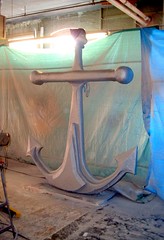I gave away a little of today’s post in my last one, where I addressed how to use keywords. Remember, I asked you if you could:
you could:
- Use them effectively in your H1, or header title.
- Use them in your H2, or header for a bullet or numbered list.
- Use them in the body of your short, opening paragraph.
That’s a start. Choosing one keyword, and using it like I showed you in Part 4 is very important. Using too many keywords can often take away from the quality writing you want to share with your readers. That one primary keyword should be used as described above, and it should be used in the opening lines of text under your title.
More Keyword Effectiveness
Another important placement of your primary keyword is in the anchor text of a link. Here’s why:
- The anchor text, or the different colored wording used when linking, provided the links connect (and you must always check), adds good authority.
- Anchor text used for linking outbound to another, possibly higher ranking site, may naturally turn into an inbound link once a relationship between authors is established. Keyword-rich anchor text coming in on an inbound link is good for authority.
- Anchor text using effective keywords for your internal linking between pages of your website is also good for your reader, and by default, you.
- Posting comments on relevant blogs and forums will also bring links in from other sites, so you want to include good keyword-rich anchor text when you leave them.
You’re not completely limited to one keyword for all your content. If used too frequently, you can actually hurt your site, not help it. Shoot for using your primary keyword naturally 2-3 times on a page in the places we’ve talked about. Then, go back and see if another word or phrase that you’ve researched can be used as a subordinate, worked into the text of your content. Don’t use it more than a few times.
It’s imperative that you write for your readership; your potential customers, your existing customers, and others, such as information gatherers and peers in your business to business relationships. If you can do this fluidly, and maintain the quality of your content, you’ve got the basics of a recipe for success.
One more thing as I wrap up this series. Be a good steward of your site. Make sure to reply to comments and return links to readers who have helped you link. It’s not going to hurt your company to complement or agree with a competitor’s comments or product lines, and doing so can actually be helpful for more than just linking. Once relationships are built, and that takes some time, you may very well find yourself in a situation where you’re offered extra work. Sometimes a company finds it better to send extra work to someone they trust than to risk turning down work with no alternative for their customer. That could only be possible with effective link strategies.
We’d love to hear from you. Be sure to leave your comments or questions with a link to your company along with your name below. Here’s to your small business success!
Photo Credit: Flickr’s danielle_blue
Related Posts:
Where Do You Find Your Keywords PT2

Leave a Reply